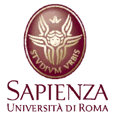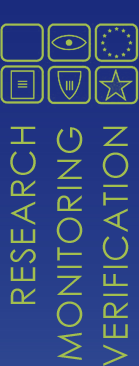
Universita di Roma “La Sapienza” The Fluid Geochemistry Group at the Università di Roma “La Sapienza” (URS) is a well established research entity which has been involved over the last 25 years in the study of gas generation, migration and accumulation, as well as aqueous geochemistry, in both natural and human-altered geological systems. In particular we have been involved in numerous European Community funded projects over the last 10 to 15 years which were focussed on better understanding the possibility of gas migration from deep geological waste deposits, including the sequestration of CO2 and nuclear waste. In terms of CO2 sequestration we are presently involved in two EC-funded projects, NASCENT, WEYBURN and CO2 GeoNet. With respect to projects on nuclear waste disposal we have examined the flow of gases within natural systems, examining in particular the sealing capabilities of clay neogenic basins to impede upward gas migration as well as the effect of elevated temperatures on the sealing integrity of these clays caused by thermal dewatering and shrinking of clay mineral phases. In addition we will also be involved shortly in a very large national project which will examine the feasibility of CO2 sequestration on Italian soil. In this project we will be involved in background and detailed soil gas, gas flux, aqueous and geophysical surveys, the development of automated monitoring systems, the performing of gas injection tests, the study of gas-water-mineral interactions and mineral precipitation reactions, the training of scientists involved in CO2 research and the education of the general public via workshops and the media. On a local scale we have also been conducting risk assessment studies for the local government of Latium on the natural emanation of toxic gases, like CO2 and Rn, in populated areas, such as the city of Ciampino on the southern edge of Rome. In this work we have conducted soil gas and aqueous geochemical surveys, performed gas measurements in private homes, developed GIS models indicating zones of elevated risk and have liaisoned with the general public to improve safety in these areas. Finally we are also involved in an EC project studying the migration of gases related to seeps at the base of the Black Sea. Although the main focus is on methane in the water column and understanding the mass flux of this greenhouse gas to the atmosphere, work performed during this project could easily be transferred to monitoring of the water column above a CO2 repository, such as that found at the Statoil site of Sleipner in the North Sea. In conclusion, the labs at URS are modern facilities with wide ranging gas and water analytical capabilities, experimental expertise, gas extraction equipment and systems for measuring gas flux at the soil-atmosphere boundary, as well as extensive experience with geostatistical and Geographic Information System (GIS) data processing packages.


